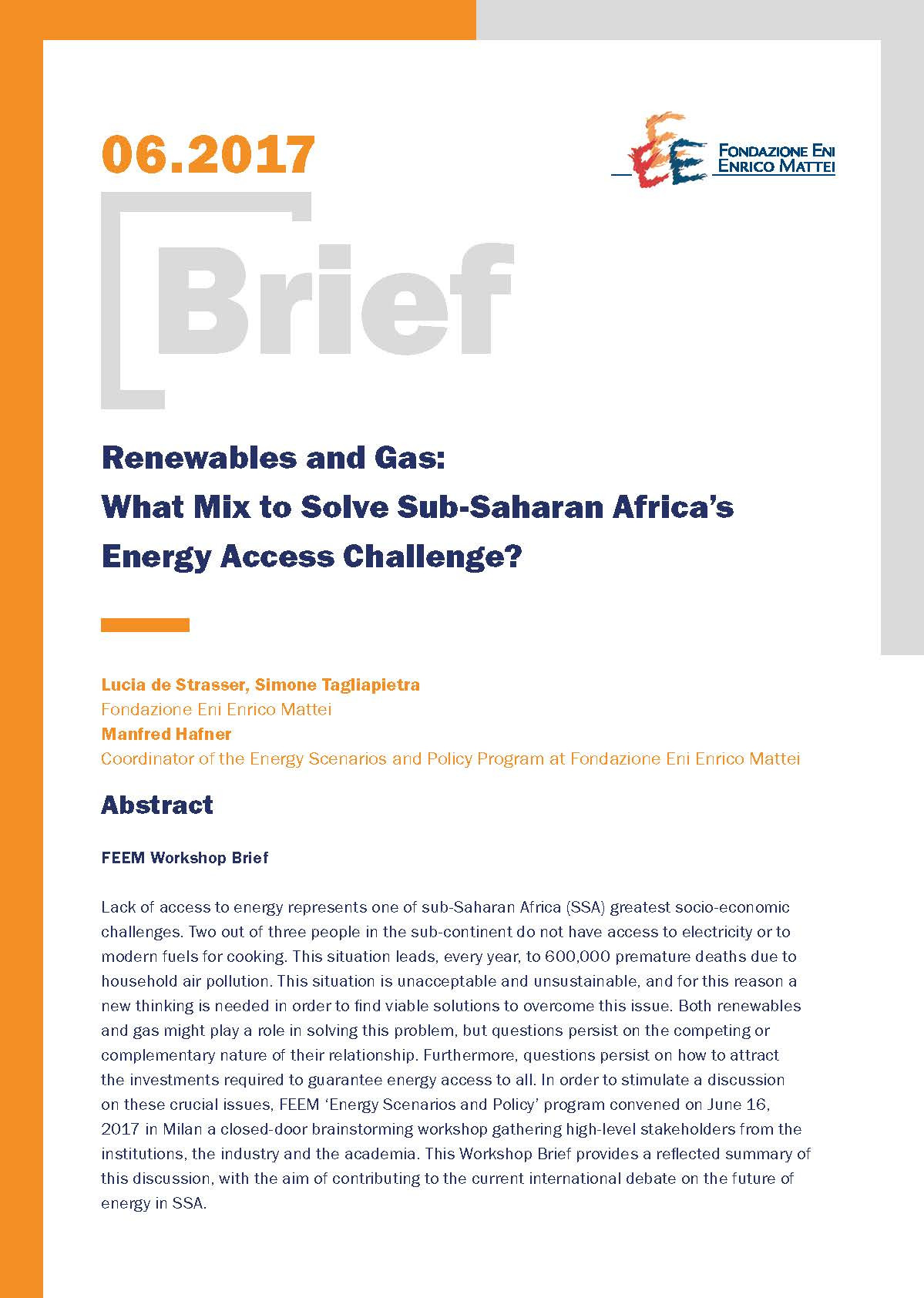Renewables and Gas: What Mix to Solve Sub-Saharan Africa’s Energy Access Challenge?

31.07.2017
Lucia de Strasser (Fondazione Eni Enrico Mattei); Simone Tagliapietra (Fondazione Eni Enrico Mattei); Manfred Hafner (Fondazione Eni Enrico Mattei)
Lack of access to energy represents one of sub-Saharan Africa (SSA)
greatest socio-economic challenges. Two out of three people in the
sub-continent do not have access to electricity or to modern fuels for
cooking. This situation leads, every year, to 600,000 premature deaths
due to household air pollution. This situation is unacceptable and
unsustainable, and for this reason a new thinking is needed in order to
find viable solutions to overcome this issue. Both renewables and gas
might play a role in solving this problem, but questions persist on the
competing or complementary nature of their relationship. Furthermore,
questions persist on how to attract the investments required to
guarantee energy access to all. In order to stimulate a discussion on
these crucial issues, FEEM ‘Energy Scenarios and Policy’ program
convened on June 16, 2017 in Milan a closed-door brainstorming workshop
gathering high-level stakeholders from the institutions, the industry
and the academia. This Workshop Brief provides a reflected summary of
this discussion, with the aim of contributing to the current
international debate on the future of energy in SSA.
Lack of access to energy represents one of sub-Saharan Africa (SSA) greatest socio-economic challenges. Two out of three people in the sub-continent do not have access to electricity or to modern fuels for cooking. This situation leads, every year, to 600,000 premature deaths due to household air pollution. This situation is unacceptable and unsustainable, and for this reason a new thinking is needed in order to find viable solutions to overcome this issue. Both renewables and gas might play a role in solving this problem, but questions persist on the competing or complementary nature of their relationship. Furthermore, questions persist on how to attract the investments required to guarantee energy access to all. In order to stimulate a discussion on these crucial issues, FEEM ‘Energy Scenarios and Policy’ program convened on June 16, 2017 in Milan a closed-door brainstorming workshop gathering high-level stakeholders from the institutions, the industry and the academia. This Workshop Brief provides a reflected summary of this discussion, with the aim of contributing to the current international debate on the future of energy in SSA.
